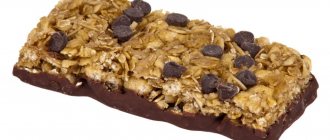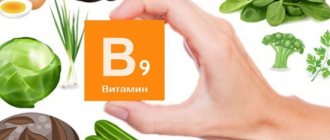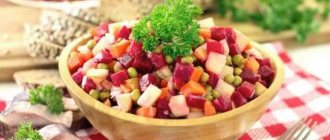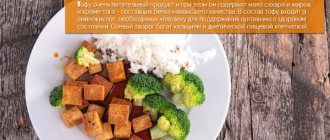Benefits of infant formula for pregnant women
Protein mixture for pregnant women has many benefits. These include a balanced composition. Most products contain optimal amounts of proteins derived from goat, cow or soy milk, vitamins and minerals.
With regular use of the product, a woman’s body simultaneously receives:
- fat-soluble;
- water-soluble organic compounds;
- nutrients.
Nutrients, vitamins and minerals are completely absorbed. The protein present in milk is involved in the formation of placental tissue. Regular consumption of mixtures helps strengthen the body's defenses and improve immunity. Products in this category have a beneficial effect on the gastrointestinal tract. Protein mixtures are quite filling: they quickly satisfy hunger and help prevent obesity.
With the systematic consumption of products containing milk protein, the risk of pathogenic microorganisms entering the intestines is minimal. Mixtures are selected individually, after consultation with a specialist. Protein deficiency in a pregnant woman’s body leads to delays in fetal development: the child may be born underweight. The mixtures can be considered a preventative against gestational diabetes.
Contraindications for use
Protein mixture for pregnant women is suitable only for completely healthy women. The product is not recommended for use by women suffering from stomach and intestinal diseases. Contraindications also include protein intolerance. The disease may be caused by malabsorption syndrome. When consuming protein mixtures, hypersensitive women may experience a number of symptoms indicating tolerance.
These include:
- swelling of the nasal and pharyngeal mucosa;
- shortness of breath;
- bouts of sneezing;
- mucus department;
- pain in the epigastric region;
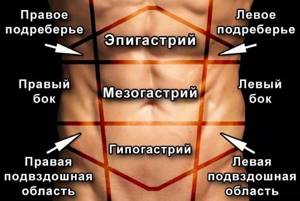
- constipation;
- increased gas formation;
- swelling;
- hyperemia;
- rashes on the skin.
Signs of an allergy usually appear almost immediately after consuming the mixture. In case of intolerance, the risk of developing anaphylactic shock is quite high.
Differences between whey and soy proteins
Soy and whey proteins are different types of protein:
- The first type is obtained from plant components. Suitable for those who cannot tolerate other proteins or those who do not eat meat. However, many scientists believe that large amounts of soy protein have a bad effect on the intrauterine development of the embryo. In addition, during production the level of aluminum content increases, which is not very good for the body.
- Whey protein is made from cow's milk, so it should not be consumed by those who have an allergic reaction to dairy products. This protein helps build muscle mass, but you must exercise daily. As a rule, there are no problems when consuming whey protein unless there is an intolerance.
Based on all that has been said, we can conclude that the answer to the question of whether pregnant women can take protein is positive. However, it is necessary to figure out whether everything is as simple as it may initially seem.
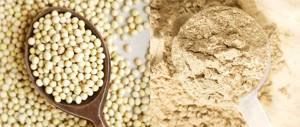
Proteins in cocktails are beneficial for both expectant mothers and the baby.
Types of protein mixture for pregnant women
Protein mixtures can be divided into several categories (depending on composition). In most cases, they contain soy, goat or cow's milk.
Main types:
- mixtures responsible for the supply of nutrients to the woman’s body;
- fortified mixtures;
- mixtures for women prone to allergic reactions.
The first group includes products from the Enfamama, MDmil Mama, DumilMama Plus and Femilak brands. The above mixtures are responsible for meeting the needs of a pregnant woman for nutrients and other nutrients. With their systematic use, the risk of developing malnutrition and late toxicosis is significantly reduced. The mixtures are also responsible for stimulating lactation. They can be consumed for a long time. The doctor usually prescribes a dietary supplement regardless of the trimester.

Category 2 includes products that contain a large amount of vitamins. The third category of protein mixtures is indicated for women prone to developing food allergies.
Mixtures belonging to this category are enriched with:
- iodine;
- acids;
- calcium
They contain components that are completely safe for the body.
About danger
Various sports nutrition products contain protein in dry form. It can be consumed during pregnancy. However, sports nutrition also contains various additives. For example, herbal ingredients are often included in the ingredients. They may have contraindications, so you should consult your doctor before taking them.
In addition, sports nutrition often includes various extracts, lactose, dietary supplements, stimulants, enzymes, etc. These supplements are intended for athletes, but not for women in delicate situations.
How to prepare mixtures correctly?
Before preparing the mixture, you must carefully study the instructions. Usually the exact dosage regimen is indicated on the packages. Store-bought protein mixture can be consumed 2-3 times a day. For this you need 2 tbsp. l. Dissolve the powder in boiled warm water. To improve the taste, you can add raisins, dried apricots, prunes and fresh fruits to your protein shake. The mixture can also be prepared independently from products familiar to most people.
Popular options:
- Orange. 150 ml of natural low-fat yogurt (without additives) is mixed with freshly squeezed orange juice (100 -150 ml). You can add 1-2 tsp to the drink. any protein mixture.
- Peach. The protein mixture (1 tbsp) is dissolved in water (150 ml). Any ready-made porridge (1 tbsp. crushed cereals) is added to the cocktail. Peel 2 ripe peaches, remove the pit and cut into small cubes. All components are mixed in a blender bowl, add 1 tbsp. l. flower honey and grind thoroughly.
- Raspberry. 100 g of fresh berries are poured with low-fat yogurt (200 ml). Combine the ingredients in a blender bowl and mix them until smooth. 150 ml of milk is poured into the resulting mixture.
- Classic. Pre-boiled egg whites (4 pcs.) are mixed with low-fat cottage cheese (100 g) and banana puree (100 g). All components are combined in a blender bowl, milk (250 ml) is poured into the mixture, honey (30 g) and olive oil (15 g) are added. All components are thoroughly mixed again.
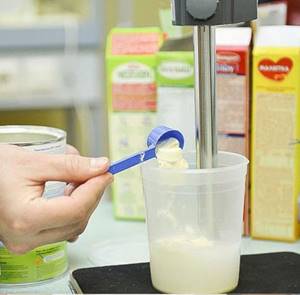
You can add any dry protein mixture to homemade protein shakes. For 250 ml - at least 1 tbsp. l.
Principles of nutrition
Pregnant women on a protein diet must follow these rules:
- Eliminate simple carbohydrates and saturated fats from your diet.
- Correctly determine the optimal proportions of proteins, complex carbohydrates and healthy fats. The optimal daily dose of protein is no more than 100-120 g.
- Correctly divide the daily dose of protein: for breakfast - 30% of the daily requirement, lunch - 15%, lunch - 40%, afternoon snack - 5%, dinner - 10%. These values are approximate; your doctor will help you determine them accurately.
- Take food in small portions 4-5 times a day with an interval of 2.5-3 hours.
- Drink 1.5 liters of liquid per day. If you are prone to edema, the expectant mother should drink about 900 ml of water per day.
- Gradually increase the diet during pregnancy: in the 1st trimester - by 100 kcal, in the 2nd trimester - 150 kcal, and from the 6th month - by 300-500 kcal.
- Replenish the diet with proteins of plant and animal origin (about 70-80% of the total amount).
- During one meal, eat 1 serving of protein food.
- Products should be consumed fresh, boiled, steamed, stewed or baked (without oil).
In addition, during a protein diet during pregnancy, it is recommended to take a multivitamin complex prescribed by the doctor. This is necessary to compensate for the lack of nutrients.
Usage rates depending on the stage of pregnancy
Protein shakes can be consumed at any stage of pregnancy. To prevent the development of early toxicosis, experts recommend drinking 250 ml of milk formula in the morning. The cocktail can be consumed at lunch or in the evening as an independent dish. Protein drinks quickly satisfy your hunger. A cocktail would be the best option for a late dinner; pregnant women are not recommended to overload their stomach before bed. In the second trimester, protein mixtures are usually consumed 2-3 times a day.
The powder should not be dissolved in tea, freshly squeezed juice or mineral water.
How can a mother make sure she is getting enough protein?
At an early stage, protein deficiency can be determined by low weight gain, increased hemoglobin and hematocrit. There is no special drug to replenish protein, so the obstetrician-gynecologist prescribes vitamin and mineral complexes in addition to the protein diet for better absorption of substances.
If the situation does not change, then more serious consequences will arise that will indicate a lack of protein:
- swelling;
- blood pressure is higher than normal.
And:
- an increase in liver enzymes, indicating problems with the organ due to a lack of protein;
- preeclampsia and eclampsia (symptoms include severe headaches, vision problems, seizures).
The listed signs of protein deficiency cause serious harm not only to the pregnant woman, but also to the unborn child. These are very dangerous conditions for the fetus that can lead to its death. Therefore, it is recommended to create your diet with a sufficient amount of protein and strictly follow it. You also need to undergo routine tests at the antenatal clinic in order to promptly identify any violations.
Blends to meet your body's nutritional needs
Mixes for making protein shakes are enriched with zinc, iodine and iron. Microelements are especially necessary during the prenatal period. Iron ensures the transport of oxygen to cells and tissues. The mineral is responsible for supporting the body's defenses; it is also involved in fermentation processes. Systematic consumption of protein mixtures helps prevent premature birth and minimizes the risk of developing iron deficiency.
Iodine, in addition to enhancing immunity, is responsible for stimulating the energy process. The microelement ensures the harmonious development of the child’s nervous system and brain. Iodine prevents miscarriages and minimizes the risk of stillbirth. During pregnancy, the microelement is responsible for the normal functioning of the thyroid gland. Zinc is involved in the breakdown of nucleic acids and proteins, restoring olfactory and taste sensitivity.

The microelement also protects a woman’s liver from the negative effects of various irritating factors. During pregnancy, zinc is necessary for the normal formation and growth of fetal bones. Its deficiency is accompanied by a disturbance in the functional activity of the nervous system in a pregnant woman: the woman becomes whiny, irritable and apathetic. Zinc is involved in cell regeneration processes and energy production.
Femilak
Femilak protein mixture for pregnant women alleviates a woman’s condition in the early stages, preventing the development of toxicosis.
The product contains the following components:
- antioxidants that protect the body of a child and woman from the aggressive effects of external irritants;
- vitamins B1 B12, which stimulate the process of uterine contractions;
- phosphorus, involved in the formation of fetal bones;
- iodine, which ensures the normal development of the child’s thyroid gland;
- taurine, which is responsible for the formation of the visual apparatus and central nervous system of the fetus;
- ascorbic acid, which provides support for the immune system and regulates blood clotting;
- folic acid, responsible for closing the neural tube;
- vitamin D, which regulates the level of calcium and phosphorus in the body of a woman and child;
The mixture also contains tocopherol, which helps prevent self-abortion. Protein shakes can be consumed not only during pregnancy. After delivery, the mixture ensures the timely production of breast milk. While consuming a protein mixture, neonatologists recommend avoiding stressful situations. To maintain lactation, a woman should drink at least 1.5-2 liters of pure still water, compotes or freshly squeezed juice.
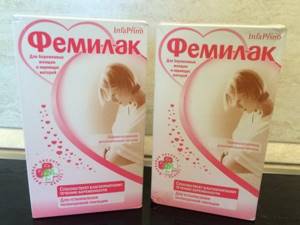
Protein mixture for pregnant women. Cocktail Femilak.
Instructions for preparing the cocktail:
- Cool boiling water to 45°C;
- dissolve 40 g (4 tsp) of powder in liquid;
- Stir the cocktail vigorously until the granules are completely dissolved.
Femilak has a pronounced taste of milk. You can add fruits and vegetables to it. The cocktail is stored in the refrigerator for 12-24 hours. The packaging must be disposed of 21 days after opening.
Dumil Mama Plus
Protein shakes made from Dumil Mama Plus mixtures have chocolate, strawberry, apple and vanilla flavors.
Active ingredients in the product:
- minerals;
- vitamins;
- omega-3 acids;
- omega-6 acids;
- selenium;
- taurine;
- beta-carotene;
- folic acid;
- carbohydrates;
- fats;
- milk protein.

During the period of bearing a child, a woman’s body needs carbohydrates and proteins. The mixture contains up to 50% of the daily intake of organic substances. Vitamins and minerals are responsible for the harmonious development of the fetus. A protein shake replenishes energy deficiency, providing a burst of energy in the morning. Experts recommend consuming protein mixtures before childbirth. Protein shakes stimulate breast milk production.
The product has virtually no contraindications, with the exception of individual intolerance to one or more active ingredients. According to reviews, side effects occur rarely and are manifested by allergic rashes on the skin, hyperemia and mild swelling.
Cooking method:
- pour the mixture (35-40 g) into warm water (200 ml);
- mix the cocktail thoroughly.
The daily intake of a protein drink during pregnancy is 500 ml, during breastfeeding – 750 ml.
MDmil Mom
Protein mixture for pregnant women MDmil Mama is a high-quality product that meets the needs of a woman. Thanks to its balanced composition, the cocktail promotes the harmonious development of the fetus, replenishment of minerals, vitamins and faster recovery after delivery. Nutritionists and pediatricians took part in the development of MDmil Mom. The product fully complies with hygiene standards.
During pregnancy, a protein shake is responsible for strengthening the body's defenses. It is taken to prevent early and late toxicosis. The protein mixture also prevents the development of anemia, osteoporosis and caries.
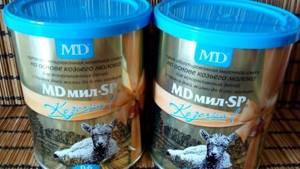
Active components:
- Docosohexaenoic acid. The substance is involved in the process of formation of the child’s brain. It is responsible for reducing the risk of developing vascular and heart diseases.
- Acids. Omega-3 and Omega-6 promote the accumulation of nutrients at the cellular level.
- Fructooligosaccharides and galactooligosaccharides. The substances are responsible for the formation of normal intestinal microflora.
- Alimentary fiber. Prevents the development of constipation.
- Nutrients. Biotin, choline, inositol ensure the harmonious formation of the child’s nervous system and brain.
The composition contains sunflower, coconut, rapeseed and palm oils. The protein mixture also contains minerals (potassium citrate, magnesium citrate, iron, sodium citrate, calcium phosphate, manganese sulfate, potassium iodide). In addition to the listed components, the mixture contains vitamins (pantothenic, folic ascorbic acid, niacin, biotin, tocopherol) and antioxidants (lecithin). To prepare a protein shake, you need to dissolve the powder (40 g) in warm boiled water (200 ml). You can drink up to 3 glasses of the drink per day.
Enfamama
Protein mixture with peach or chocolate flavor contains:
- zinc;
- potassium;
- sodium;
- magnesium;
- iron;
- iodine;
- phosphorus;
- calcium;
- inositol;
- pantothenic acid;
- biotin;
- vitamin B12 B6, B2;
- vitamin PP;
- thiamine;
- folic acid;
- vitamin C;
- vitamin E;
- vitamin D;
- vitamin A;
- mineral ash;
- carbohydrates;
- fats;
- proteins.
Dietary supplement replenishes the deficiency of nutrients necessary for active growth and formation of the fetus. The basis of the cocktail is easily digestible protein. The mixture is enriched with microelements involved in the formation of the child’s central nervous system. The concentration of fats in the protein mixture is reduced, which helps to avoid obesity during pregnancy.
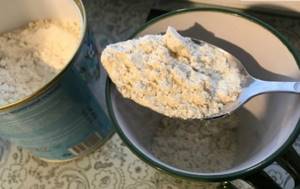
Cooking method:
- Dissolve 50 g of powder in 200 ml of warm water;
- Stir the drink thoroughly.
Experts recommend taking the mixture in the morning and evening. The daily intake should not exceed 500 ml. The finished drink is stored in the refrigerator for 12-24 hours.
The basis of diet and nutrition
A protein diet is prescribed to pregnant women only if they gain a lot of weight. Her regimen is gentle, so discomfort and a tight schedule are excluded. Fasting is contraindicated for everyone, and even more so for pregnant women. Let's look at the basic rules of a protein diet and the principles of proper weight loss during pregnancy:
- Drink as much clean water at room temperature as possible.
- Eliminate baked goods made with yeast from your diet.
- Limit pure sugar consumption, including desserts.
- Drink fruit or green tea. Add herbs to it. Can be sweetened with honey to avoid using sugar.
- Baked goods, candies, energy drinks and candy bars are also prohibited.
- Smoked meats, semi-finished products, canned and pickled foods should not be eaten by all women on a diet, and even more so during pregnancy.
- Eat more natural foods that are rich in vitamins: vegetables and fruits. Exclude: strawberries, citruses.
- Consume more fermented milk products, and milk no more than 100 grams per day.
- Avoid sauerkraut and pickles. They contain a lot of salt, which will cause swelling of the limbs, as well as back pain.
- It is better to give up carbonated drinks once and for all and put a ban on fast foods.
- Drink only freshly squeezed juices. Tomato and orange with caution, because they are strong allergens.
- Salt the food you eat less. Swelling will be associated precisely with the consumption of large amounts of salt.
- Create a daily routine and eat according to a schedule. This will become a habit and will help you get in shape after the baby is born.
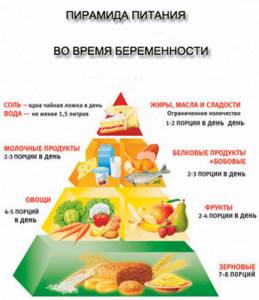
Fortified mixtures enriched with polyunsaturated fatty acids
Products in this category contain riboflavin, vitamin B6, B12, C and D. Vitamin B2 is involved in many biochemical processes, including redox ones. The substance stimulates the formation of antibodies and red blood cells. Riboflavin is responsible for regulating the reproductive functions of the fetus. During pregnancy, a woman should consume at least 1.4 mg of the vitamin daily. Riboflavin also ensures healthy hair and nails.
Vitamin B6 is responsible for heme synthesis. The substance enhances the immune response and takes part in protein production processes.
Vitamin B6 deficiency can cause:
- drowsiness;
- nausea;
- loss of appetite;
- irritability.

Ascorbic acid takes part in redox reactions. Vitamin C accelerates the absorption of iron, ensures normal hematopoiesis, restores the functional activity of the endocrine system and normalizes liver function. Ascorbic acid strengthens the immune system and increases the body's resistance to diseases of viral, bacterial and infectious etiology. Vitamin B12 ensures the normal formation of the nervous system.
The substance has a beneficial effect on the liver, accelerating fat metabolism. Vitamin D promotes faster absorption of calcium. During pregnancy, it is necessary for the normal formation of the child's skeleton. Vitamin D also stimulates the immune and nervous systems.
Annamaria
Annamaria protein mixture for pregnant women contains a small amount of fat. The basis of a protein shake is vitamins, proteins, minerals and acids.

Active components:
- Fatty acid. Helps restore the functional activity of joints, brain and heart. The substances are responsible for lowering cholesterol levels and act as natural antioxidants.
- Sodium and potassium. Microelements regulate water-salt balance.
- Zinc. The substance minimizes the risk of self-abortion, premature birth and toxemia.
- Magnesium, phosphorus and calcium. Microelements are considered “building material” for a child’s cartilage and bones.
- Vitamin E. Ensures the normal functioning of the reproductive system and participates in the processes of fetal formation. The substance minimizes the risk of developing preeclampsia.
- Vitamin D. Participates in the process of skeletal formation. Vitamin deficiency can cause anemia.
- Ascorbic acid. Responsible for stimulating and strengthening the immune system, increasing the body's protective functions.
- B vitamins. Strengthen muscles, restore the functional activity of the cardiovascular, digestive and nervous systems. Prevents nausea.
- Vitamin A. Participates in the growth processes of the placenta. Protects cells from the aggressive effects of external factors.
- Folic acid. Minimizes the risk of developing birth defects.
The mixture contains a large amount of proteins necessary for the harmonious formation of the fetus. A balanced product made from high quality and natural raw materials. The preparation method is standard: you need to dissolve the powder (40-50 g) in warm water (200 ml). The daily norm is at least 500 ml.
Is it possible to drink protein during pregnancy?
All about the need to take protein during pregnancy. How much and when to drink it. What to watch out for.
The importance and benefits of modern protein are beyond doubt.
Taking this supplement is a chance to improve your achievements in sports, increase overall tone, help muscles recover faster after training, speed up the process of muscle mass gain, and become more resilient and stronger.
Modern protein is a safe product that is made exclusively from natural products and is well absorbed by the body.
But it’s one thing when an athlete takes protein (his goals are quite clear - to achieve success in bodybuilding). But is protein needed during pregnancy? Can I drink it? These questions are often asked by expectant mothers, so they cannot be left unanswered.
About the importance of protein
We have already mentioned that protein is a vital element that is necessary not only for muscle growth (as many people think). It is assigned a number of important functions:
- “builder” for the skin, nails, all internal organs, circulatory and immune systems, but also, of course, muscles;
- “carrier” of the most important substances to the most distant cells of the body;
- “defender”, because protein molecules play an active role in the formation of the body’s immune system.
Given the above, there is no doubt that protein is very important for any person (not just for women during pregnancy). Its lack can lead to a number of troubles:
- A lack of collagen (which is exactly what protein contains) can lead to a loss of strength and elasticity of the skin. At the same time, the skin literally ages before our eyes, becomes wrinkled, loses its former attractiveness and smoothness;
- “eating” the body’s own internal organs and muscles. This process is easily explained scientifically and is called “catabolism”;
- disorders of the liver, hormonal imbalance, developmental disorders (in children), malfunction of the endocrine glands, and so on;
- failure of metabolic processes, decreased muscle mass and increased fat deposits;
- problems with nails, skin, hair.
All of the negative consequences listed above can be completely avoided. To do this, protein must be supplied to the body all the time. It doesn’t matter where you get it from - food or supplements. The main thing is strict adherence to the dosage. And this is especially important for pregnant women who carry a small life under their hearts.
About dosage
So, we have decided that the body should receive protein during pregnancy.
But to what extent? Recently, scientists have come to the conclusion that an average woman should take about 45-50 grams of protein per day, and this will be enough to cover all needs.
In turn, pregnant women need a lot more protein, because another organism is growing inside them. So, expectant mothers should take at least 70-80 grams of protein per day.
Of course, this does not mean that this exact amount of protein should enter the body every day. One day you can eat more, another day less. But the general weekly or monthly norm must be met. Unfortunately, in practice, most women during pregnancy do not receive even a third of the required protein. Hence the big problems with bearing a child and giving birth.
Of course, you can also get protein from food - lean meat, fish, eggs, milk, cheese, yogurt and poultry. In general, there are plenty of sources of useful components. But for various reasons, the protein still does not arrive in the required dosage. Often during pregnancy, taste preferences change greatly, so eating one or another product is sometimes very difficult.
About danger
How dangerous is protein during pregnancy (as a dietary supplement, of course)? I would like to immediately note that dried protein can be taken in its pure form.
Much more dangerous are the various additives found in sports nutrition. For example, some protein shakes contain certain herbs.
To make sure the latter are safe, you can consult your doctor.
In addition, various extracts, lactose, dietary supplements, herbal stimulants, enzymes and other components are often added to the protein (except for the protein itself), which are intended exclusively for athletes, but not for women during pregnancy.
It is important to remember that during such a crucial period, herbs such as ginger or anise are very dangerous. It is advisable to avoid rosemary, licorice root, chamomile or sage. There is nothing healthy about fructose or sugar, flavorings and sweeteners, saccharin and aspartame. But all this in large quantities may end up in the purchased supplement.
conclusions
Therefore, if protein is urgently needed during pregnancy, carefully read the composition of sports nutrition and be critical of each suspicious component. It is better to consult your doctor ten times than to harm your child once.
Mixtures with a high risk of developing food allergies
Protein mixtures belonging to the third category are intended for women suffering from allergic reactions. They contain proteins obtained from goat milk. The product is considered hypoallergenic. With its systematic use, dyspeptic disorders occur extremely rarely.
Amalthea
The instant protein mixture replenishes the deficiency of calcium and vitamins in the body of a pregnant woman.
Active ingredients in the composition:
- l-carnitine;
- mesoinositol;
- choline;
- ascorbic acid;
- folic acid;
- biotin;
- pantothenic acid;
- niacin;
- vitamin B12 B6, B2, B1, E, A, D;
- selenium;
- copper;
- iodine;
- manganese;
- zinc;
- iron;
- magnesium;
- potassium;
- sodium;
- phosphorus;
- calcium;
- carbohydrates;
- fats;
- proteins.
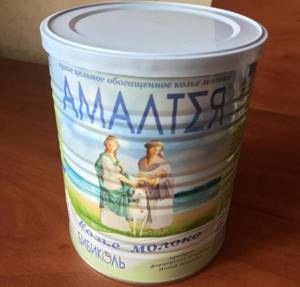
Hypoallergenic protein mixture accelerates the process of breast milk production. It can also be taken during pregnancy to maintain the balance of minerals and nutrients in the body. Method of preparation: dissolve 50 g of powder in warm water. Opened cans are stored for 4 weeks.
About dosage
Women need to consume 45-50 g of protein daily to satisfy all the body's needs. However, this will not be enough for the expectant mother, because... Another person is developing within her. For pregnant women, the daily norm is 70-80 g. It is not necessary to adhere to this figure all the time. One day you can consume more protein, another day less. The most important thing is that the weekly norm is met.
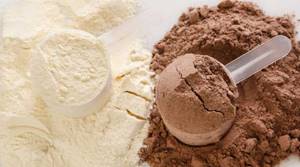
Protein for pregnant women is as necessary as vitamins, minerals and carbohydrates.
Often, pregnant women do not get even half of the required protein. Because of this, problems arise during gestation, development, and birth. You can compensate for the deficiency of the substance with certain foods. However, in a delicate situation, food preferences change dramatically. The expectant mother simply cannot eat certain foods, despite their benefits.
There are special supplements that contain a lot of protein. But before you take them, you need to figure out whether you can drink protein during pregnancy.
Cost of protein mixtures for pregnant women
The cost of protein mixtures may vary depending on the category and manufacturer.
Approximate prices:
| The product's name | Cost (for 400-500 g) |
| Femilak | 280-320 rub. |
| Dumil Mama Plus | 300-340 rub. |
| MDmil Mom | 280-350 rub. |
| Enfamama | 300-360 rub. |
| Annamaria | 270-340 rub. |
| Amalthea | 290-350 rub. |
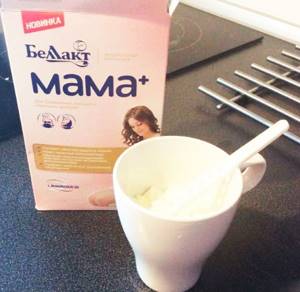
The cost may be affected by the method of purchasing the products: when ordering a protein mixture from an official representative, the price will be slightly inflated (it usually includes the cost of postage). Protein mixtures are completely safe for nursing and pregnant women. They contain nutrients necessary for the intrauterine development of the child. If you follow the dosage regimen, the risk of side effects is minimal.
Sample menu for every day
The diet for a protein diet should consist of a list of permitted foods. The morning and evening dose of protein is less than the lunch dose. Main meals need to be diluted with additional ones. During lunch, afternoon snack or second dinner, you can eat fermented milk products, biscuits, fruits, vegetables, dried fruits or nuts.
Menu for a protein diet for pregnant women
Day 1:
- muesli with milk, green tea;
- biscuits, kefir;
- vegetable soup, boiled beef, salad with tomato and cucumber, a piece of rye bread, compote or tea;
- vegetable or fruit salad;
- rice with baked fish, stewed cabbage, green tea.
Day 2:
- cottage cheese with honey, dried fruits, green tea;
- sandwich with cheese and herbs, tea;
- baked veal with steamed broccoli, sorrel borscht, a slice of black bread, dried fruit soup;
- a handful of nuts, fermented baked milk;
- boiled fish, salad with tomatoes, bell peppers, tea.
Day 3:
- 2 soft-boiled eggs, rye bread toast, herbal tea;
- grated apple with carrots and honey;
- soup with beans and chicken breast, sliced vegetables, tea;
- a handful of dried apricots, fermented baked milk;
- cottage cheese casserole with prunes, dried apricots, tea.
Day 4:
- millet porridge with milk, kefir;
- natural yogurt with fresh fruit;
- boiled beef, sauerkraut and green pea salad, tea;
- baked pear with walnuts, prunes;
- boiled fish, boiled potatoes, boiled beet salad with sour cream.
Day 5:
- lean cottage cheese, weak natural coffee with milk;
- vegetable or fruit salad;
- cabbage soup seasoned with sour cream, fish cutlets, vegetable salad;
- biscuits and fermented baked milk;
- boiled meat, vinaigrette.
Day 6:
- protein omelet in milk with tomato, bell pepper, tea;
- salad with avocado and peach with honey;
- rice with boiled meat, baked cauliflower and cheese;
- a handful of nuts with kefir;
- steamed fish with stewed vegetables.
Day 7:
- cheesecakes with lean cottage cheese, apples or dried fruits, tea;
- natural yogurt with pieces of fruit;
- chicken soup, steamed broccoli, 2 rye bread toasts;
- sandwich with cheese, tomatoes, herbs, tea;
- salad with avocado and salmon.
